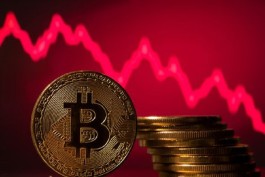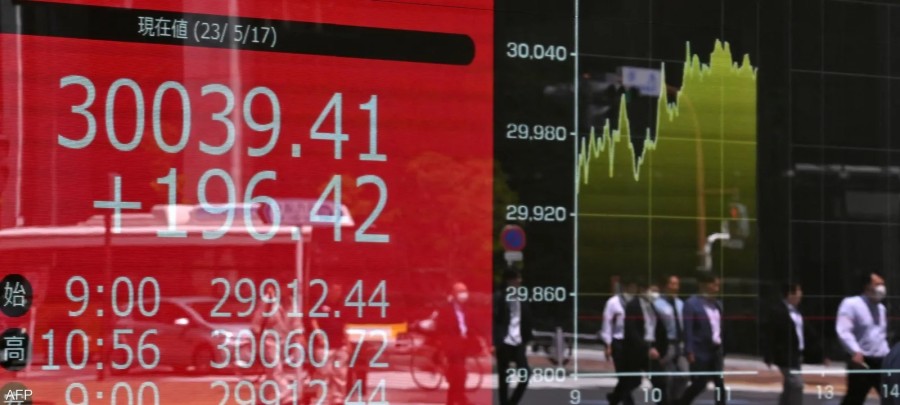Asian stocks erased early gains as losses in Chinese shares overshadowed optimism about progress toward ending the longest US government shutdown in history.
The MSCI regional stock index remained virtually unchanged after rising earlier by as much as 0.5%. Chipmakers such as SK Hynix and Samsung Electronics were among the top gainers, while shares in mainland China fell by 0.8%.
Widespread optimism after the White House endorsed the agreement
US stocks rose on Monday, with the MSCI All Country Index posting its best daily performance since late June, after the White House expressed support for the bipartisan agreement to end the shutdown, a key development likely to lead to the government reopening within days.
In a separate move, US President Donald Trump floated the idea of paying a $2,000 customs duty to US citizens.
Optimism extended to other markets, with the commodity price index climbing to its highest level since August 2022. The dollar index rose slightly, while both gold and Bitcoin continued to climb.
Risk appetite returns to the markets
The synchronized moves across assets suggest that investors are ready to return to high-risk sectors after the recent sell-off in technology stocks, which was fueled by fears of rising valuations.
Many are betting that the government's reopening will restore the flow of key economic data on jobs and inflation, giving markets greater clarity on the Federal Reserve's monetary policy path.
Leon Goldfield, head of multi-asset solutions for Asia Pacific at JPMorgan Asset Management, said in an interview with Bloomberg that markets are currently in a consolidation phase, but the fundamentals, as we look ahead to 2026, remain relatively strong.
The historic 41-day U.S. government shutdown is set to end as of Wednesday, after the Senate passed a temporary funding bill backed by a group of eight moderate Democrats.
The Senate vote on Monday was 60 to 40, amid escalating flight disruptions, delayed food aid, and growing frustration among federal employees who have not been paid for more than a month.
Bonds decline, commodities rise
As investors flocked to riskier assets, bonds fell on Monday. Treasury bonds face a demand test this week with auctions totaling $125 billion, and the bond market will be closed on Tuesday for Veterans Day.
Commodities also rose, with aluminum advancing alongside copper and other industrial metals. Aluminum, which hit a three-year high last week, has been one of the best-performing metals on the London Metal Exchange in recent months, as investors assess the impact of capacity constraints in China amid continued strong demand.
Gold and oil are on a stable trajectory.
Gold extended its gains for a third day, trading above $4,130 an ounce amid expectations of further interest rate cuts by the Federal Reserve. Meanwhile, Brent crude remained virtually unchanged near $64 a barrel.
In Japan, Prime Minister Sanae Takaichi is seeking to revitalize the economy and launch a new growth strategy through investment in vital sectors with her first stimulus package.
Attention will also be focused on Indian assets, after Trump indicated that he would soon reduce tariffs on its goods, stressing that the United States is very close to reaching a trade agreement with New Delhi.
Economic data expected after the government reopens
Returning to the issue of reopening the US government, precedents from 2013 suggest that the September employment report could be among the first data released, perhaps within three working days of the government resuming operations, according to Jim Reid of Deutsche Bank.
As government agencies resume operations and statistics begin to flow again, Federal Reserve officials will be faced with data compiled through retrospective surveys and other methods, if the figures are even published at all.
While private sector reports on the labor market help fill the gap created by the lack of official data, alternatives to government inflation data remain scarce and limited in scope.







































